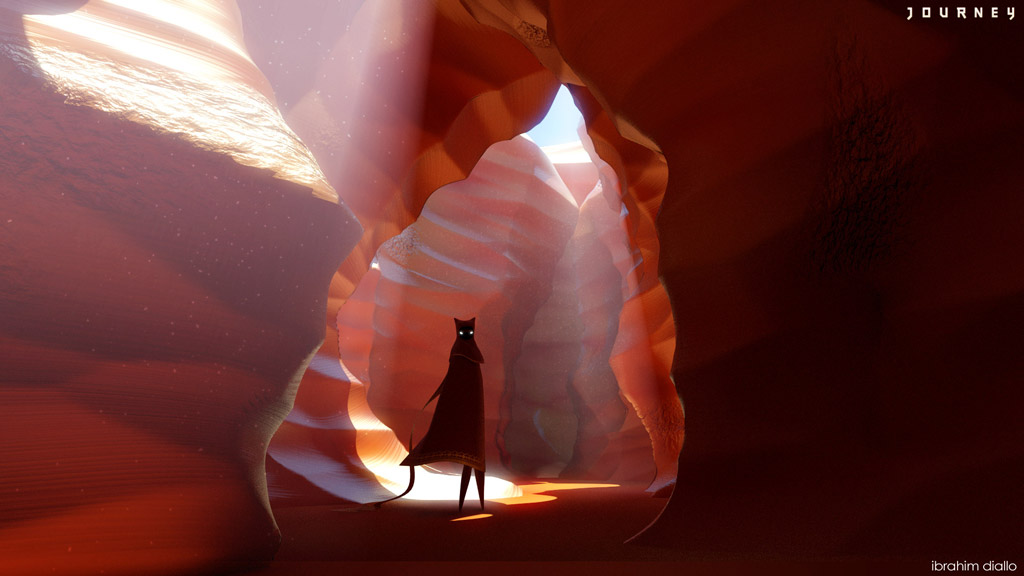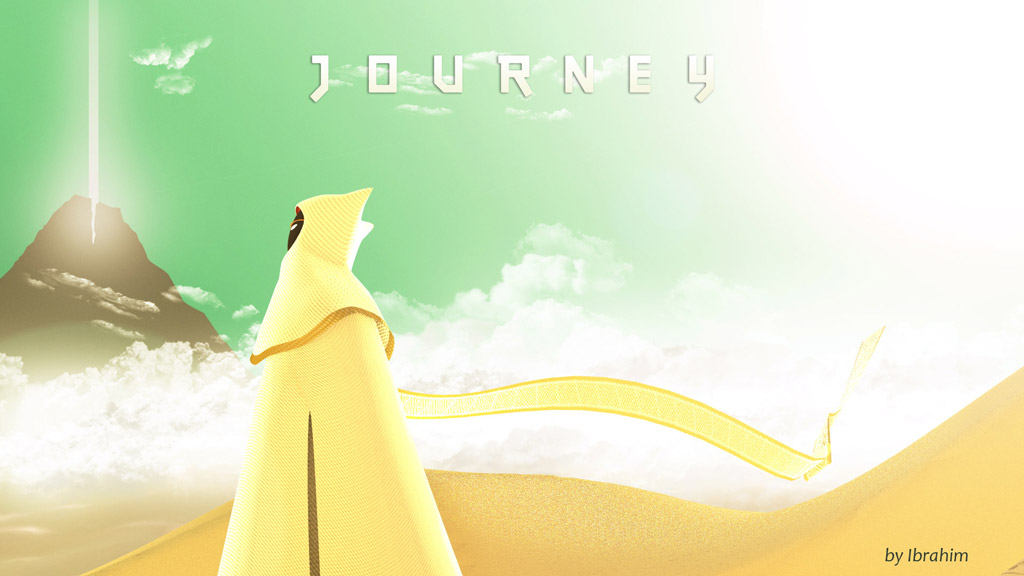It's the first time I see myself making fan art. I have to say Journey is a game that changed my perspective on video games. Well not just video games, but the whole online experience.
Jeff Atwood is trying to engineer empathy on the web using Discourse. It's a challenging task and he is still trying to figure it out.
One of the first things I learned when I began researching discussion platforms two years ago is the importance of empathy as the fundamental basis of all stable long term communities. The goal of discussion software shouldn't be to teach you how to click the reply button, and how to make bold text, but how to engage in civilized online discussion with other human beings without that discussion inevitably breaking down into the collective howling of wolves.
Discussion on the web is very hard. It derails easily into the foul experience we know as YouTube comments.
The online experience encourages discussion, any kind of discussion, as long as it adds more content to the page. Unfortunately, when a user starts to read an article and disagrees with the point being made, he jumps straight to the comments section and gives his two cents.
There is no way you are going to add something constructive to an article if you only read paragraph one of fifty two.
Every website owner wants comments to be fair, constructive, and helpful. But that is only their intention. The website is designed in no way to promote this empathy.
On discourse and stackoverflow, they implement The Just in Time system. This system gently reminds you that there is a human being on the other side, reading and writing just like you. And it surprisingly works. There is less of YouTube experiences on these plateforms.
It is definitely a good attempt to fix online discussion.
How is this related to Journey?
Jenova Chen, the man behind the game, successfully weaponized empathy in video games. Anyone that played the game will tell you how grateful, happy, emotional they felt. There are hundreds of blogs where people tell about their positive experience. The same can't be expected from Call of Duty.
Every time I play the game, I know I will get a message from the person I played with. When we finish the game together, I get a thank you. If we are separated in the game, I get a "I'm so sorry, I wish we could've finish together".
Just like Atwood, Chen talks about the challenges in engineering empathy. They had to eliminated most of the things found in traditional games to achieve it.
- Instead of having players competing for resources, they are encouraged to help each other find and share them.
- When you play with another person, even the music changes and becomes more dramatic.
- When you touch the other player, you regenerate. Which encourages you to stick with someone in difficult levels.
- You can't talk with other players, but you can communicate with a single musical note. Which reduces your communication simple emotions.
Among many others.
Journey is a refreshing addition to the growing world of video games. It shows us that there is something beyond the traditional AAA games. It's not even about how much money was put in the game. Thatgamecompany employees were not paid the last 6 months of production and the company went bankrupt the day they launched Journey.
What made a difference was the never before seen experience they created, the lived they affected. It inevitably became a success.
That is why for the first time, as a person who can't hold a pencil steadily, I took the time to create this fan art. I fell in love with this marvel of engineering, music, and art.
If you haven't already, buy the game. It's available for PS3 and soon coming to PS4.
And when you do, don't forget to share your story with me.



